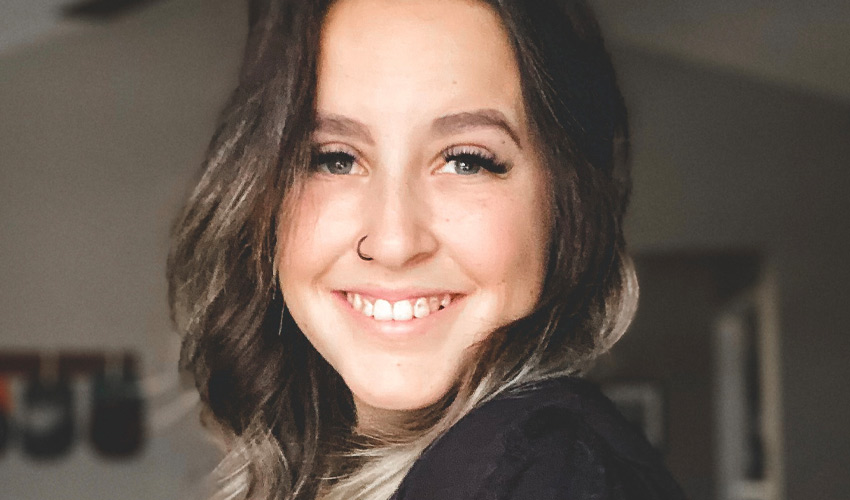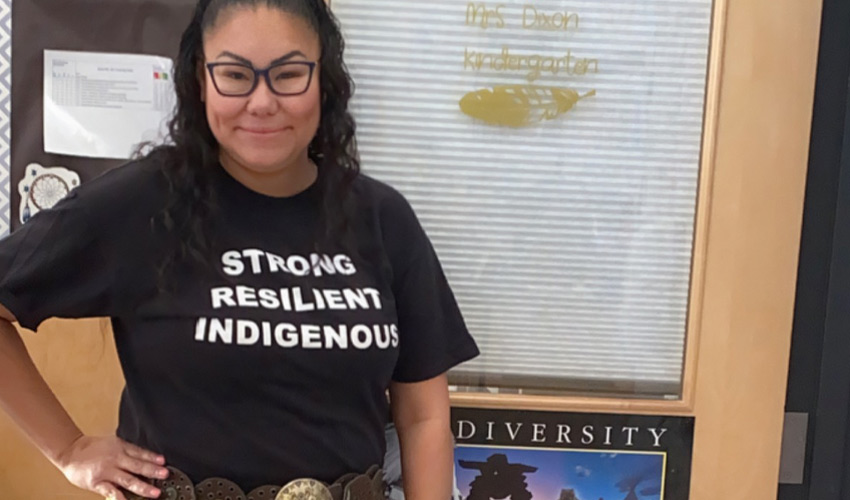Knowledge-sharing in the classroom
MRU education major makes progress in teaching Indigenous ways
As Mount Royal continues to actively indigenize the institution through initiatives such as bringing on the expertise of an AVP of indigenization and decolonization, the Mount Royal Bachelor of Education — Elementary (BEd) major is striving to integrate Indigenous ways of knowing into the curriculum in order to prepare teacher-candidates with the necessary tools and knowledge to indigenize their own classrooms.
Throughout their career, Alberta teachers must demonstrate six Teaching Quality Standards: 1) Fostering effective relationships; 2) Engaging in career-long learning; 3) Demonstrating a professional body of knowledge; 4) Establishing inclusive learning environments; 5) Applying foundational knowledge about First Nations, Métis and Inuit; and 6) Adhering to legal frameworks and policies.
BEd professor Norm Vaughan, PhD, emphasizes standard five — Applying foundational knowledge about First Nations, Métis and Inuit — while teaching a third-year project where students learn about Indigenous storytelling with hopes of integrating even more Indigenous education into the program. Vaughan shares that the goal is to have third-year BEd students teaching and learning directly in Indigenous schools, but the ongoing COVID-19 pandemic has put a hold on those plans. Although students aren’t currently able to visit these schools, several MRU BEd alumni are making their mark as stand-out teachers in these places of education.
Alumni leading the charge

MRU alumna Courtney Fox teaches Grade 7 and 8 math at Chief Big Belly school.
While Mount Royal and other post-secondary institutions have many inroads to make in the journey to Indigenous education, indigenization, decolonization and truth and reconciliation, it’s evident how far MRU has come since the birth of the BEd program.
Courtney Fox, who teaches Grade 7 and 8 math at Chief Big Belly school, says that when she graduated from the program in 2016, she wasn’t fully sure what to expect teaching in an Indigenous school. She shares that while she took classes on Indigenous knowledge, her desire to teach in an Indigenous school stemmed from her Kainai roots.
“I felt like my purpose was to teach in an Indigenous community, which is why I went into education in the first place,” Fox says.
In her graduating year Fox visited Chiila Elementary School, located at the Tsuut'ina Nation, where they were able to tour the school, meet students and speak with teachers, but they didn’t have the opportunity to complete a practicum in an Indigenous school.
“I know Mount Royal is now doing a lot more to prepare future teachers to teach in Indigenous schools by partnering with Indigenous schools and having education students complete practicums there,” she says.
While teaching in Indigenous schools has its challenges, Fox says it also has many rewards. Teaching at Chief Big Belly is more community-based than teaching in a city school, she says, and teachers at Indigenous schools aren’t just interacting with students and parents – they’re also interacting with siblings, cousins, aunties, uncles and grandparents.
“Getting to know the kids on a deeper level is one of the most fulfilling parts of my job,” she says. “You get to dive deeper into who the kids are and who their families are, which lets you see the ‘whole child.’”
Fox shares that students being able to see themselves in their teacher is extremely valuable, a sentiment that’s echoed by alumna Debbie Dixon, member of the Blackfoot Nation, who teaches at Nakoda Elementary in Morley.
“When I walk into the classroom and Indigenous students see me, they’re like ‘Whoa, she’s just like me! There are teachers like us?’” Dixon says.
While the importance of Indigenous education is clear when it comes to teaching in Indigenous schools, Dixon highlights why it’s needed to teach Indigenous education in city schools as well.
“You have to be knowledgeable to teach all of your students. You’re always going to have First Nations students in your classroom, even if you don’t know it,” she says. “You always have to be educating yourself in order to be the best for your students.”
Both Fox and Dixon say that they’re constantly learning from their students as well, knowledge that will be carried forward and strengthened with each year.
Indigenous education continues to grow

Mount Royal alumna Debbie Dixon teaches at Nakoda Elementary in Morley.
Alumnae like Fox and Dixon now act as guides for future teachers as they share their experiences teaching in Indigenous schools with MRU education students. In a normal year, third-year students would also have the opportunity to speak with students at Indigenous schools. With the uncertainty of the COVID-19 pandemic, MRU’s education program is eager to get future teachers back into Indigenous schools for fourth-year practicums, but are navigating safety challenges with alternatives in the interim.
Jessica Gosselin, a third-year student with close ties to the Siksika nation, says the Digital Storytelling project helped her recognize the meaningfulness of storytelling among Indigenous Peoples.
“It’s important to me to learn about the people whose footsteps were here first,” she says.
Gosselin, who’s training to teach elementary school, says that Indigenous education should start in kindergarten classrooms.
“I think reconciliation is super important, and one way for that to happen is for teachers to educate younger generations on these things,” she says.
While Gosselin acknowledges and appreciates all MRU’s BEd program has done to push Indigenous perspectives and inclusive environments, she thinks Indigenous education can still go further.
“I see opportunities all the time to bring Indigenous perspectives and the history of Canada into classrooms and to talk about what that means in all levels of education.”
Jan. 19, 2022 — Katherine Sharples
Media request contact information.
Have a story idea? Please fill out this form.

